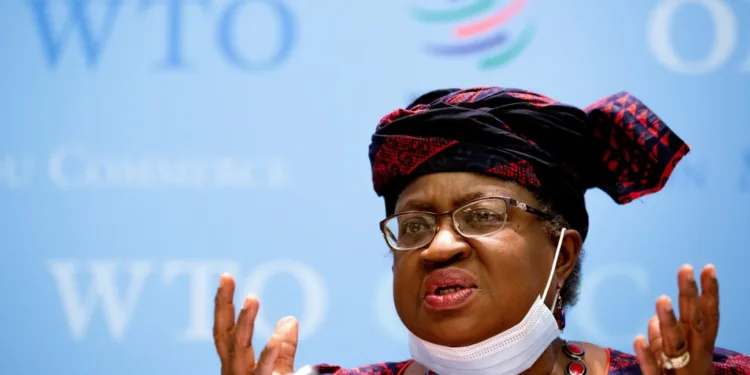The World Trade Organization (WTO) has launched a $1.2 million initiative aimed at enhancing the export quality of Nigeria’s sesame and cowpea commodities.
Fully supported by the Standards and Trade Development Facility (STDF) and the Nigeria Export Promotion Council (NEPC), the initiative aims to tackle the obstacles hindering Nigerian cowpea and sesame exports from meeting global sanitary and phytosanitary (SPS) standards.
Speaking at the inauguration of the seven trade support programs for Nigeria initiated by the WTO, World Bank, and International Trade Centre (ITC) on Tuesday in Abuja, the Federal Capital Territory, The WTO Director-General, Dr. Ngozi Okonjo-Iweala reiterated the commitment of the global bodies in ensuring Nigeria’s produce meet up the standard for global exportation.
She elaborated that the project’s main goal is to facilitate the attainment of international safety and quality certification standards for sesame and cowpeas produced in Nigeria.
“This type of project is one I term a low expenditure, high impact project. With initial funding of $1.2 million, of which nearly a million comes from STDF, we aim to train local food safety advisers and empower stakeholders to meet international market access requirements.”
Highlighting the untapped potential of Nigeria’s agriculture sector, she emphasized its capacity to significantly propel export diversification and job generation.
However, she lamented that various barriers continue to impede the realization of this potential, hindering the sector’s growth and contribution to the economy.
“We all know the story about Nigeria being a significant exporter of palm kernels, groundnuts, palm oil, cotton, and cocoa, but the country has since become a net importer of many of these goods. In fact, Nigeria has not only lost out in agricultural export markets; it is also a net food importer, spending about billions a year on goods, many of which we can also produce here.
Nigeria used to be a formidable agricultural exporter. Up until the mid-1960s, the country’s share of world agricultural exports was more than one per cent.
However, agricultural exports collapsed as the economy shifted towards petroleum exploitation, and by the mid-1980s, Nigeria’s world market share for agricultural products had dwindled to less than 0.1 per cent.”
Also Read: How Sierra Leone Aims To Transform Healthcare System
How?
According to Okonjo-Iweala, the unrealized potential of Nigeria’s agricultural sector lies in the trade-related challenges on the supply of produce. This is what the initiative aims to tackle.
She noted that despite Nigeria’s status as the world’s largest producer and consumer of cowpeas and the fourth-largest producer of sesame, the country has faced growing challenges with the export of these produce.
These challenges stem from non-compliance with international Standard Phytosanitary Measures (SPS) standards, resulting in increased rejections of Nigerian products.
Specifically, concerns have been raised regarding pesticide residue levels exceeding permissible limits, particularly in sesame exports destined for global markets like Japan.
To address these issues, the project aims to improve the capacity of stakeholders involved in the sesame and cowpeas value chains by concentrating on improving agricultural practices, which encompass pesticide application, hygiene protocols, harvesting, post-harvest methods, and food safety measures.
The initiative endeavors to ensure adherence to international standards. Through these targeted interventions, the project seeks to enhance the competitiveness and market access of Nigerian agricultural exports while mitigating concerns related to SPS compliance.
According to the D.G of WTO,
“the project which will kick off with an initial amount of 1.2 million dollars of which nearly a million comes from STDF will also be used to train local food safety advisers.
“This type of project is one I term a low expenditure, high impact project. The WTO is not a financing agency like the World Bank or IMF, but it has a wonderful secret that I find very attractive.
“It spends small sums of money to make a big impact. You can not imagine how a million-dollar intervention can earn Nigeria hundreds of millions of dollars if not billions in increased agricultural exports.
“Supporting improved incomes for farmers, exporters, businesses and others once agriculture producers and exporters follow the correct sanitary and phytosanitary standards.”
Speaking at the launch, the NEPC Executive Director, Nonye Ayeni, highlighted the challenges faced by Nigerian food exports and the rejection of some products like sesame and cowpea.
Okonjo-Iweala responded by explaining that the quality, packaging, and sanitary of the exported products are below standard. She further expressed commitment as the D.G of WTO to the cause. she said,
“a good number of these factors led to the decision of WTO/ITC to sponsor the STDF project, which will be backed by expected 30% counterpart funding from NEPC.”










